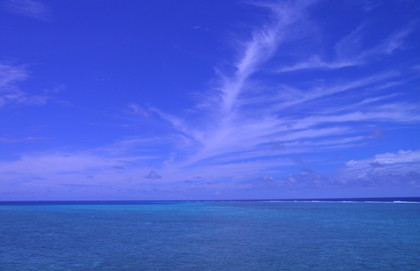
The Atmosphere, Oceans and Climate Dynamics group focuses on fundamental problems of Atmospheric science, Meteorology and Climatology, Atmospheric physics and atmospheric environment, Marine Biology, Physical Oceanography.
Faculty in the area of atmospheric science mainly study air pollutants that can alter the air quality and affect human health, including acid rain, persistent organic pollutants, ground level ozone, particulate matter and their chemical species. Our research is based on an integrated and multidisciplinary approach, which includes the study of the science of air issues, from the source of pollutants, and their transportation and interactions in the atmosphere, to the impacts on health and the environment. Our research also supports the development of regulations, guidelines and policies to protect the health and the environment. The main research areas are:(1) Ambient Measurements: Measurements of atmospheric trace gases to understand the air pollution formation, transport, and impact on the human health;(2) Pollution Formation Mechanism: Mechanism and prediction of the urban and regional air pollution and their effects on the atmospheric environment;(3) Source apportionment: Identifying the types of emission sources, whether they are anthropogenic or the result of naturally occurring events and their relative contributions to measured air pollution helps identify and quantify the sources that would be most effective to control. we also have strong active collaborations to numerous national and international research groups. This also helps our group members to build their own network of professional relations.
Faculty in the area of meteorology and climatology mainly engage in exploring the basic laws governing atmospheric motion, physical and chemical processes in the atmosphere, and the interaction between the atmosphere and its surrounding environment, especially the study of the mechanism of climate and environment in East Asia. The main study field is to understand the regulations and mechanisms of regional environmental system changes, and the impacts of global change on regional climate system and study on orderly human adaptation.
Marine biology is the scientific study of organisms in the ocean or other marine or brackish bodies of water. Given that in biology many phyla, families and genera have some species that live in the sea and others that live on land, marine biology classifies species based on the environment rather than on taxonomy. Marine biology differs from marine ecology as marine ecology is focused on how organisms interact with each other and the environment, and biology is the study of the organisms themselves.
Physical Oceanography involves the exploration and study of the physics and geography of the ocean currents and water properties and their roles in the earth’s climate- and eco-systems. Physical oceanography has important applications in global climate, oceanic mixing, and coastal studies, as well as being a key element in interdisciplinary studies of primary production, hydrothermal vents, and oceanic flux and storage of carbon dioxide. Practically speaking, there are 5 basic ways in which we approach the problem of understanding the ocean:Field Work (Observational oceanography), Mathematical Theory,Numerical modeling, Laboratory work and Oceanic Remote Sensing.
Faculty in the core areas of Atmosphere, Oceans and Climate dynamics include:
● Atmospheric Science(Jihua Tan)
● Meteorology and Climatology(Fengmei Yao, Lijuan Hua)
● Atmospheric Physics and Atmospheric Environment(Fumo Yang)
● Marine Biology(Qiang Su)
● Physical Oceanography(Haiyan Li)